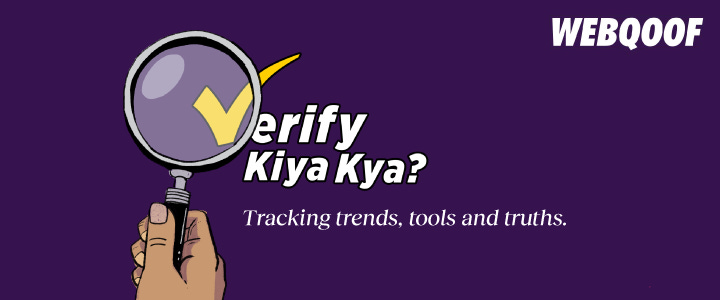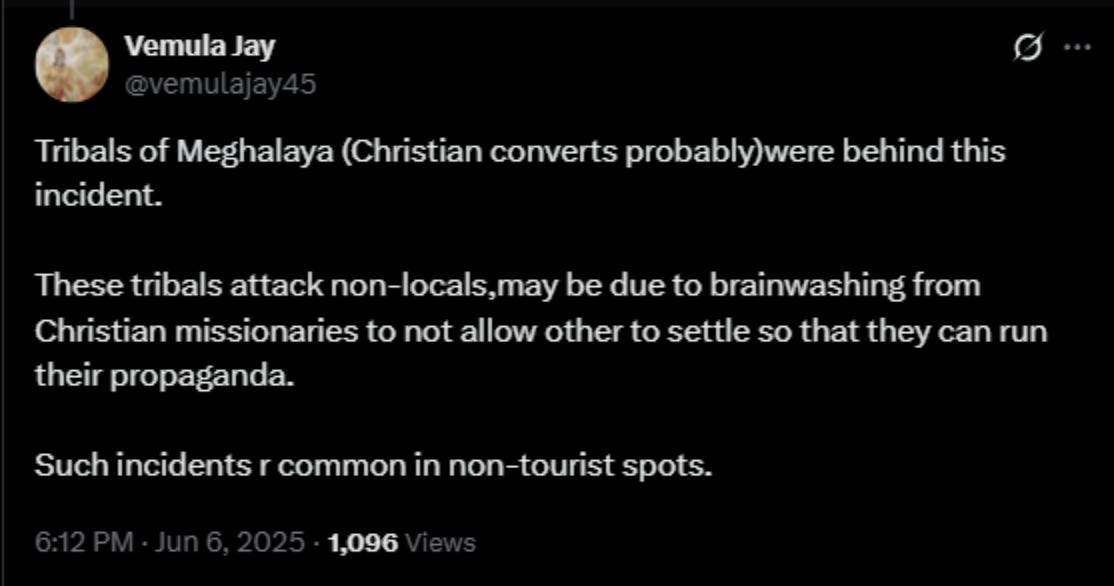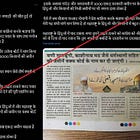How the Internet Othered the Northeast After the Meghalaya Honeymoon Murder
Become a member because we need your support to fight against misinformation.
A newly-married couple. A honeymoon in Meghalaya. A body found.
The tragic death of Raja Raghuvanshi, with his wife Sonam emerging as the prime suspect, rightly shook many. But before facts were established, a barrage of misinformation, racism, and communal hatred took over the internet.
Instead of questions like “what happened?” or “what does the evidence say?”, we saw an immediate rush to blame — not the accused, but an entire community.
We looked at how this incident turned into a digital witch-hunt against the Northeast and people from the Christian community.
From Zero Facts to Full-Blown Hate
When the case first broke, there was a clear information vacuum. The investigation was underway. But on X (formerly Twitter), that didn’t stop users from jumping to conclusions.
Take this post for example - An X (formerly Twitter) user called ‘@vemulajay45’, while replying to a post on Raghuvanshi’s death, said that tribals of Meghalaya were behind the incident. He claimed that the tribals attacked non-locals due to “brainwashing from Christian missionaries”.
The post was not just false but also dangerous as it racially discriminates against the entire region. It pins the blame on “Christian tribals” without a shred of evidence. All this at a time when the police were still suspecting a kidnapping.
“Racists Will Be Racists — But There’s Also a Wilful Lack of Knowledge”
Speaking to The Quint, Gertrude Lamare, PhD candidate at the London School of Economics, offered important context:
“Racism among mainlanders towards Northeasterners comes from a historical, even wilful, lack of knowledge… Outside academia, representation verges on exoticisation.”
Even in university syllabi, the Northeast often appears as a footnote — an add-on rather than an integral part of the country. That absence plays out online in the form of crude stereotypes and suspicion.
“Unsafe for Tourism” & Other Lazy Takes
Misinformation quickly snowballed into racist generalisations. Multiple posts suggested Meghalaya was dangerous and “not for tourists.”
Even Madhya Pradesh Chief Minister Mohan Yadav said, “Letting children go so far should also be thought about”, implying that young couples should not explore the Northeast? Or that certain parts of India are somehow less Indian?
Lamare also mentioned the repeated instances of racial abuse, especially targeting people from Northeast India, which worsened during the COVID-19 pandemic due to ignorant stereotypes linking them to China. She said, "This persistent discrimination online deeply wounds individual and collective identity, further alienating the Northeast from the rest of India."
Truth Surfaces, But the Damage Is Done
On 9 June, Meghalaya Police shared an update:
Three people were arrested.
Raja’s wife, Sonam, surrendered in Ghazipur, UP.
No local tribals. No missionaries. Just a murder case with a painful twist.
Even Meghalaya CM Conrad Sangma called out the vilification of the state, and said, “The people of the northeast were hurt and wrongly stigmatised.”
Several social media handles noted that it was wrong to blame the region. These users demanded an apology for the racist comments against the communities.
One post stood out among the noise — a heartfelt message from a resident of Sohra, Lumlung Kamei:
“Sohra is not just safe — it is one of the most peaceful and welcoming destinations in India.”
This is the narrative that deserves amplification.
Verify Kiya Kya?: Don’t Fill the Vacuum With Hate
Misinformation thrives in silence — and in our urge to share before verifying.
As our team at WebQoof always says:
📌 Pause before you post
📌 Check official sources
📌 Ask yourself: Who does this narrative target?
Watch our explainer on how to handle breaking news online:
What Can You Do to Fact-Check During a Breaking News Situation?
Whether it’s through mis, disinformation or racism — internet behaviour matters. Let’s be the people who ask better questions. Let’s say: Verify Kiya Kya?
Become a member* of The Quint because we will need your support to continue our fight against misinformation. Consider contributing to our work.
Until next time,
ABHISHEK ANAND
Senior Correspondent, Fact-Check
KHUSHI MEHROTRA
Correspondent, Fact-Check
Also Read:
*Already a member of The Quint? What a star! Your support empowers us to question everything.
Want us to cover a story? Write to us at editor@thequint.com or reply to this email.







